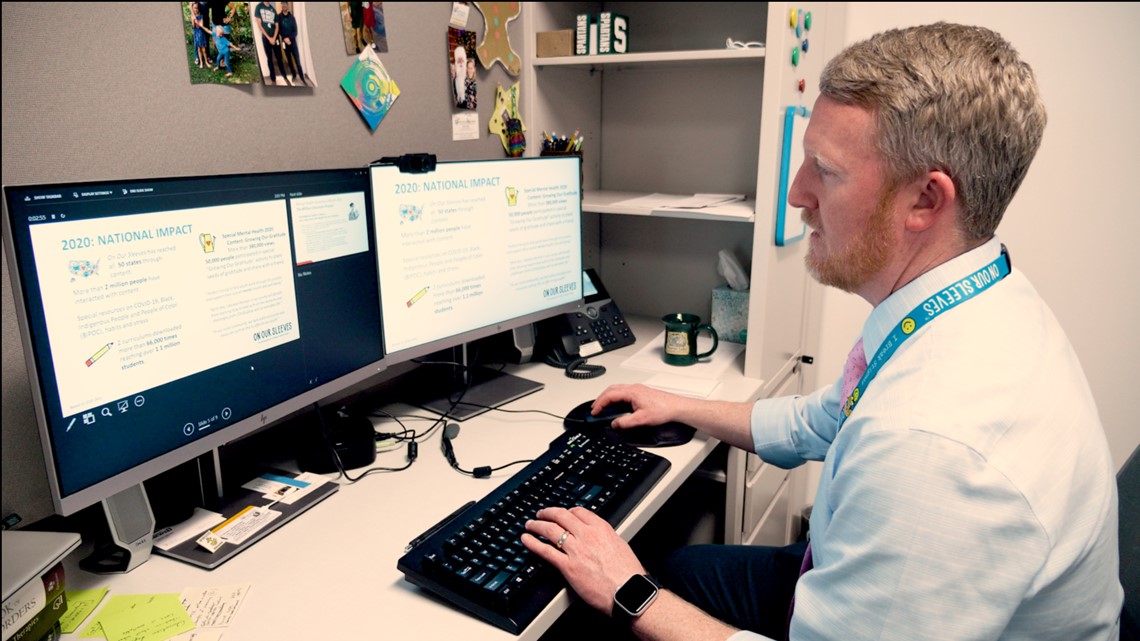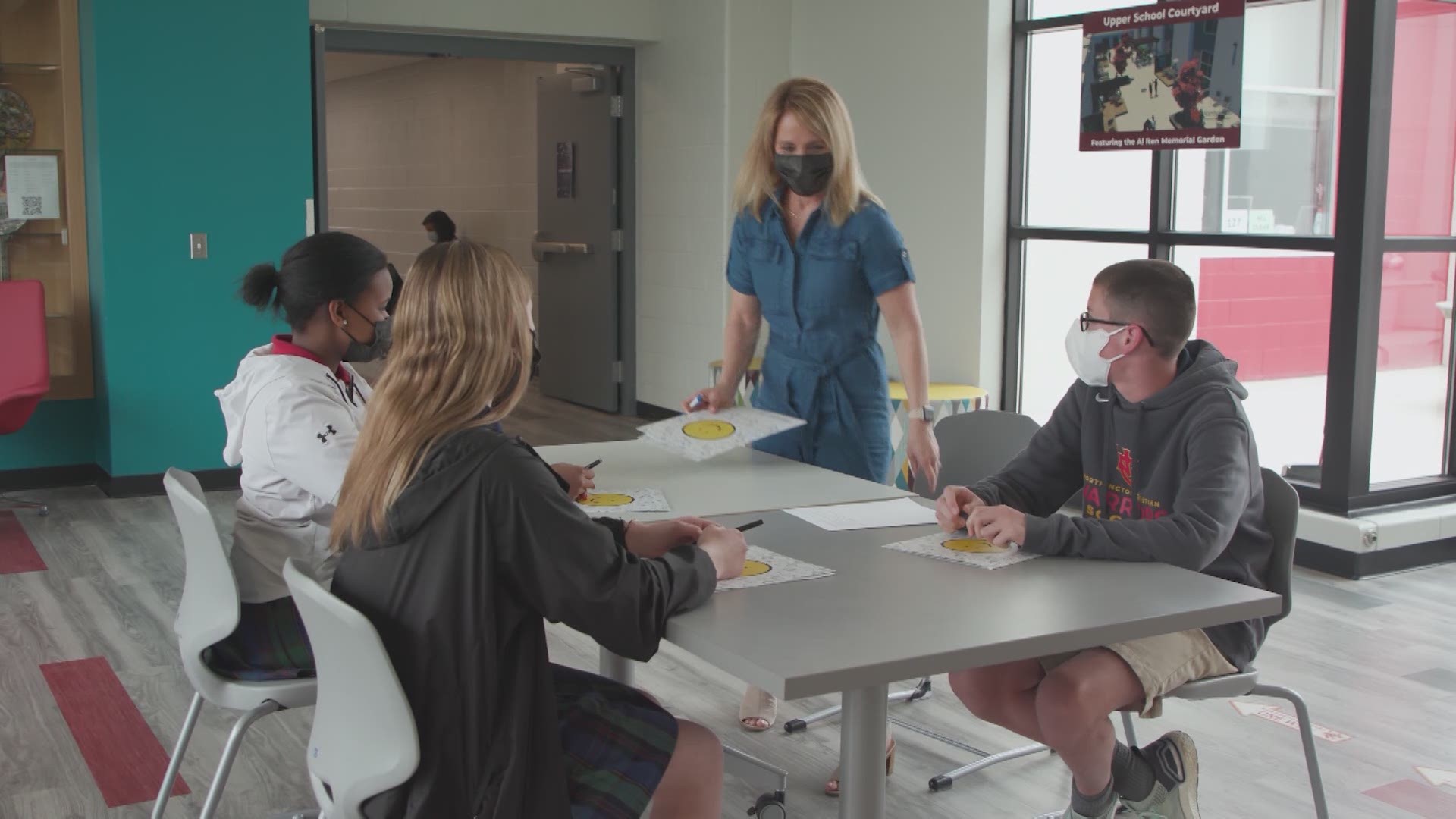COLUMBUS, Ohio — Though many kids appear to have been incredibly adaptable through the many changes and challenges of the past year, they’re likely feeling a lot of emotions after their routines, time with friends and even their sense of safety and security were disrupted.
If not addressed in a healthy way, strong negative emotions, such as anger and fear, can have lasting effects on kids’ mental health, but experts with On Our Sleeves® say empowering them to effectively communicate those emotions can help children cope in these difficult times, and will also serve them well in the future.
“There’s been so many kids going through a shared stressful experience right now. But the fact is that before the pandemic started, we were already in a mental health crisis for children in this country,” said Parker Huston, Ph.D., clinical director of On Our Sleeves, a movement that offers free educational resources to help children understand and regulate their emotions during this difficult time and beyond.


“Parents, teachers and caregivers can help by purposefully coaching kids to identify their emotions and recognizing these emotions in themselves and others. Children will experience a wide range of emotions, and they should. Learning to understand and manage their emotional experience is necessary for long-term mental health.”
Emotional empowerment is a series of skills children can start learning at a young age and build over time. Activities can be as simple as stopping to do some deep breathing or reading a book with a parent and discussing how the characters may be feeling.
Some tips from Huston:
- Identify Emotions: Helping a child build their emotional language gives them a better understanding of how to use words to express how they are feeling.
- Recognize Emotions: Many people – both kids and adults – find it tough to recognize emotions as they are feeling them. We can create a mental habit of doing a self-check and adjust our thoughts and behaviors based on how we feel.
- Understand Emotions in Others: Noticing and understanding emotions in people around you is crucial for forming and maintaining close personal relationships, and a core component of empathy.
- Express Emotions Appropriately: It’s important to learn how to communicate all emotions we feel, but some are more difficult to express than others. Children can learn how to express any emotion they feel in an appropriate way.
- Regulate Strong Emotions: Regulating strong emotions and having a balanced state of mind is an important part of the developmental process. Learning foundational skills early helps kids keep their emotions from taking over.
“When we have really strong emotions that might impact our behavior or our ability to function, we need to be able to recognize, express, and regulate those emotions rather than letting our anxiety take over or our sadness limit our functioning for long periods of time,” Huston, also a pediatric psychologist at Nationwide Children’s Hospital, said. “We can give kids the tools to cope with emotions as they feel them, communicate how they need help, and get those emotions back to a manageable level.”
Mental health resources, such as discussion starters and activities on emotional empowerment and other topics, including gratitude and resiliency, can be found at OnOurSleeves.org.

